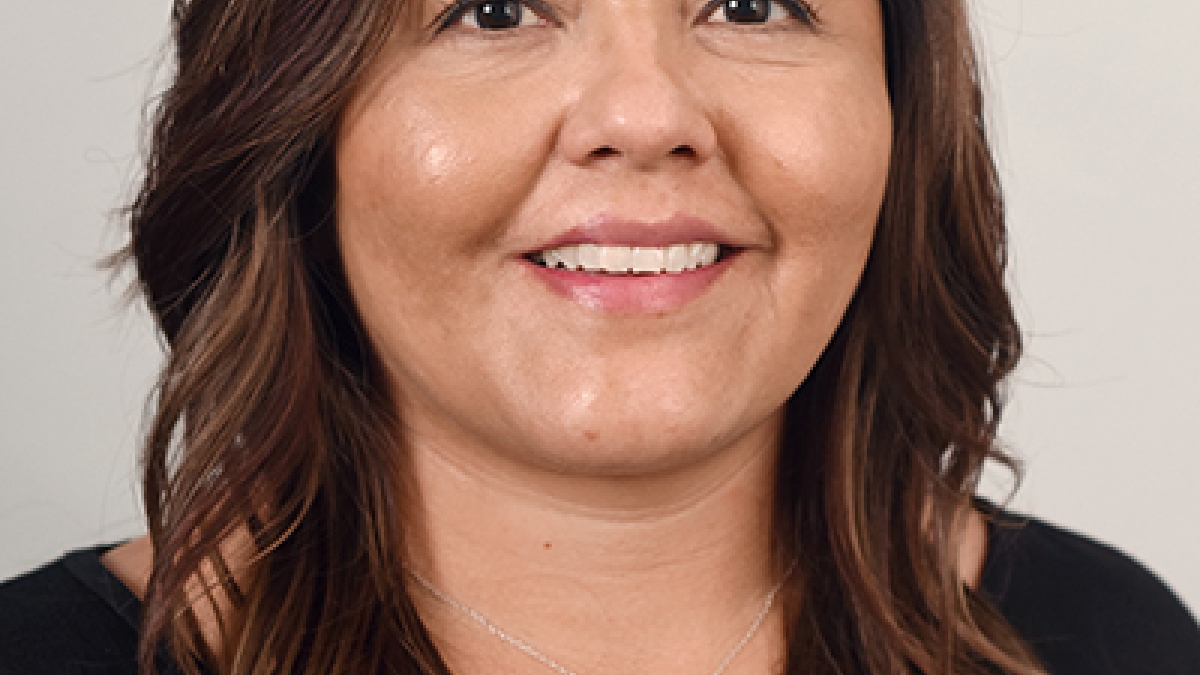Charlene Poola says her interest in social work started with her mother.
“I am Hopi-Tewa and Navajo. My mother would be sure that the elders in our community had transportation to get groceries or go to the Laundromat. She would take them to town to get a warm meal,” Poola said. “I saw her community mobilizing. I didn’t know it was social work, but thought — that’s what I want to do.”
Poola is now pursuing her PhD in social work at Arizona State University. She is also one year into a prestigious Council on Social Work Education Minority Fellowship Program for doctoral students.
The program supports students who are leading efforts to improve healthcare outcomes for diverse, underserved populations.
Connecting research and practice
Before coming to ASU, Poola spent 14 years working with tribes in New Mexico.
“I really liked working with tribal organizations to enhance their behavioral systems. I was working for the University of New Mexico to bring in partnerships. My goal was to make sure our work was engaged, using community-based participatory research principles,” she said.
Poola did a needs assessment with New Mexico Native American tribes. It took nearly eight months to identify behavioral health resources, types of therapy provided and support the tribal organizations wanted to see and their thoughts about evidence-based treatments.
“Back then evidence-based was a buzzword,” she said. “I compiled the feedback and was able to present the needs to UNM and the tribal organizations to develop resources.”
“I didn’t want to collect data just to collect data,” she said. “This is what the tribes need and we have a responsibility as a public institution to support those needs. I also didn’t want to do that without tribal involvement.”
The results of her assessment took off for eight years. She helped three tribes get SAMSA grants. They implemented clinical trainings statewide that fused traditional and western culture.
Poola would stay with UNM but moved to more of a hospital environment.
“I discovered that I didn’t really like it. I realized that I am a community-based person. I also realized that our work — American Indians — was not being represented in research so that’s when I decided to come back to school,” she said.
Bringing expertise back to the community
Poola examines how to help American Indians adapt evidence-based treatment to fit their communities. She is particularly interested in the process.
“When I graduated with my master’s degree, I was a clinical social worker. The first thing I wanted to do is find out what treatments are out there for American Indians. At that time — 2003 — there were none. So what are we doing in the field to make it work?”
Poola says she learned from the team who had years of experience.
“Now, I know what occurs, because I have 14 years of practice but I didn’t document how I did it. I just knew surface adaptations that needed to occur,” she said. “I knew we needed to start doing this. Our upcoming generation of clinicians needs to have a bag of tools to provide the best treatment possible.”
She’ll be working with tribes in New Mexico as part of her dissertation.
“Social work is about addressing social injustices, social equality. I feel like if we have more students of color addressing this, maybe there would be more equitable resources for all to access,” Poola said.
More Health and medicine

ASU, University of Wisconsin partner to empower Black people to quit smoking
Arizona State University faculty at the College of Health Solutions are teaming up with the University of Wisconsin to…

New book highlights physician wellness, burnout solutions
Health care professionals dedicate their lives to helping others, but the personal toll of their work often remains hidden.A new…

80 years of pioneering speech and hearing services for the community
Over 80 years ago, in 1937, the first course in communication disorders, Speech Correction, was offered at Arizona State…
